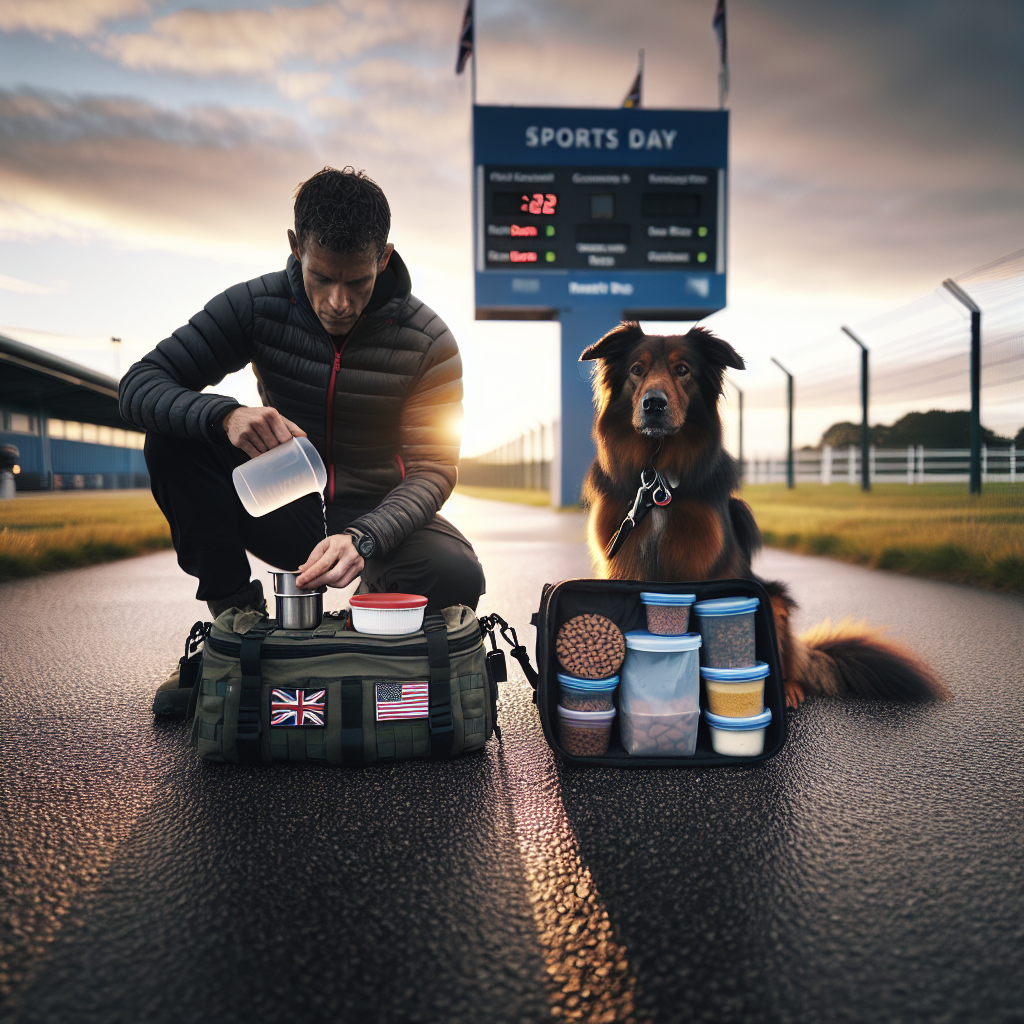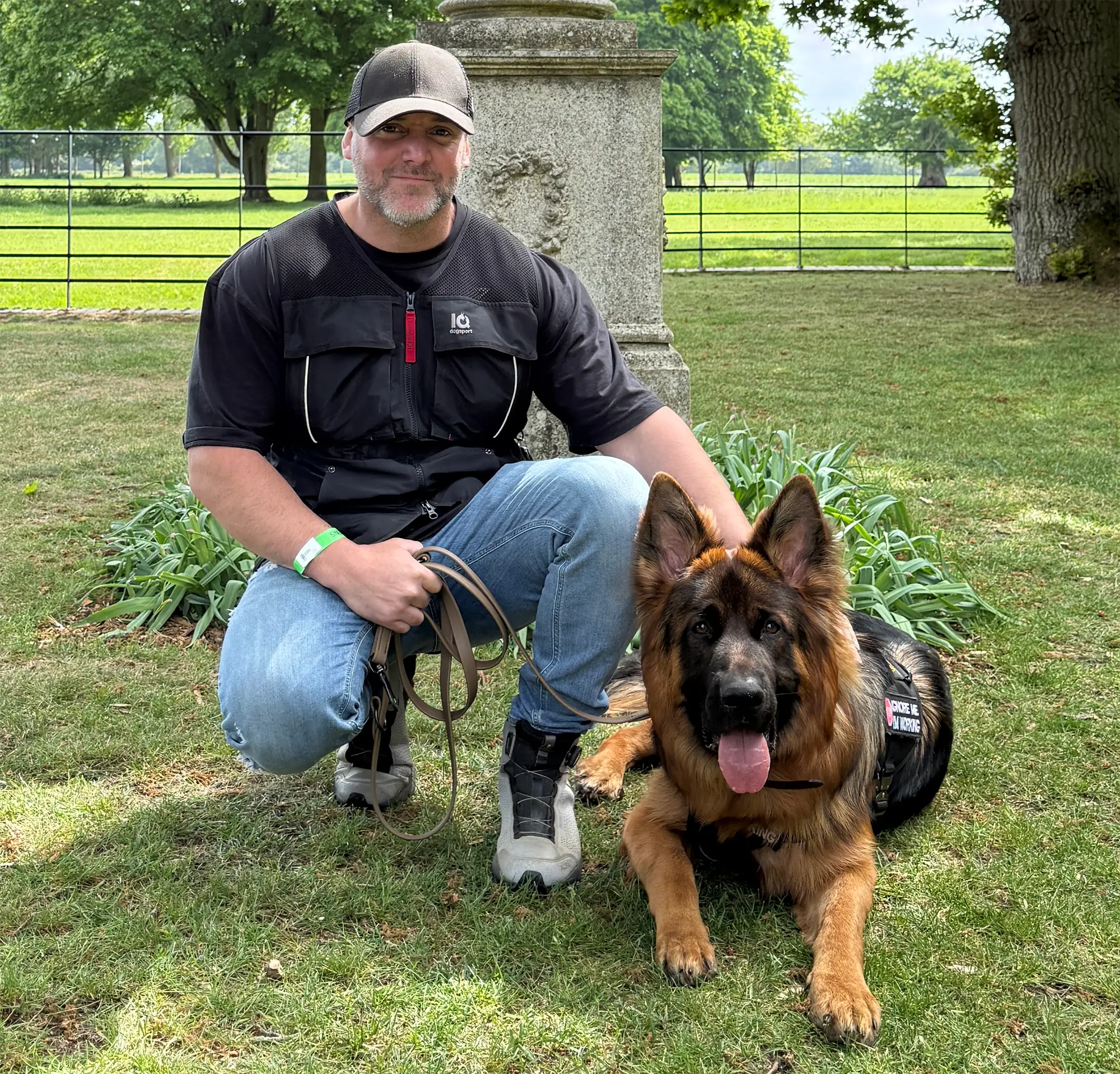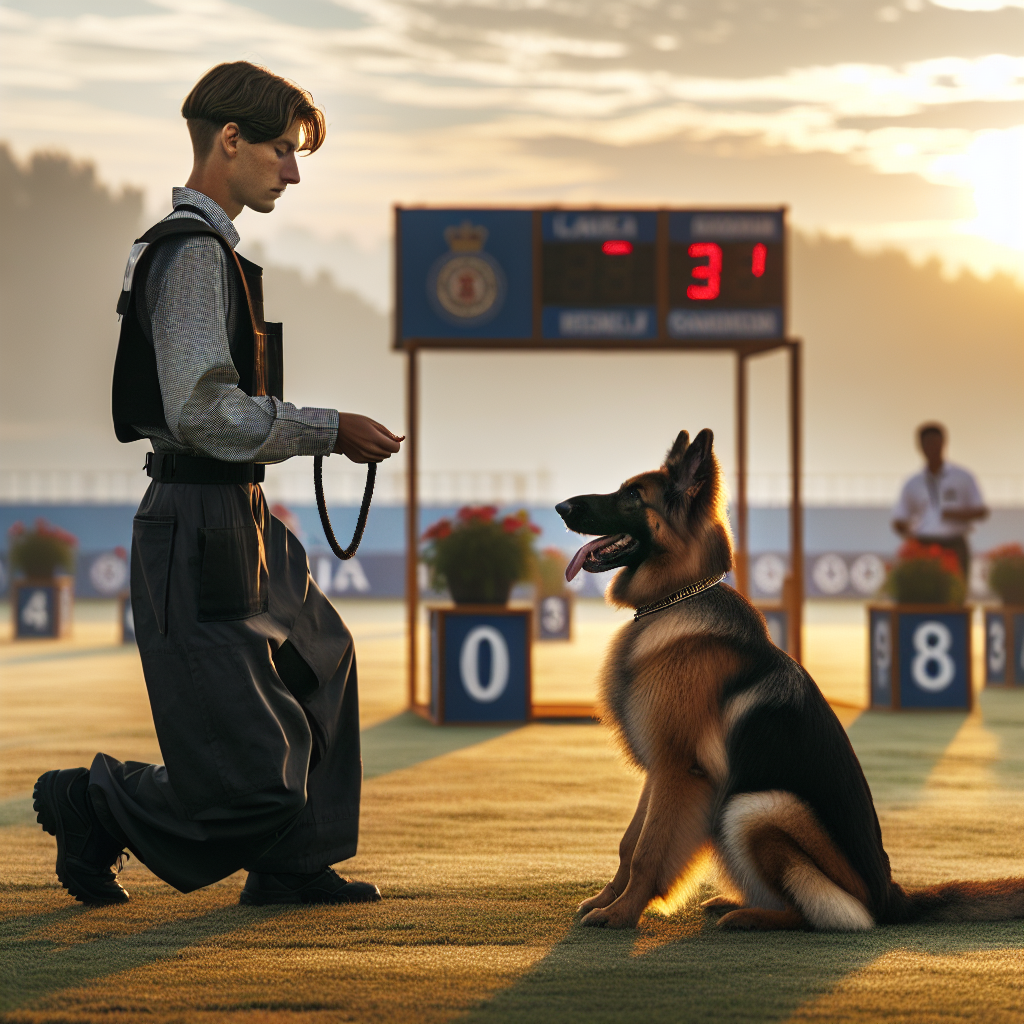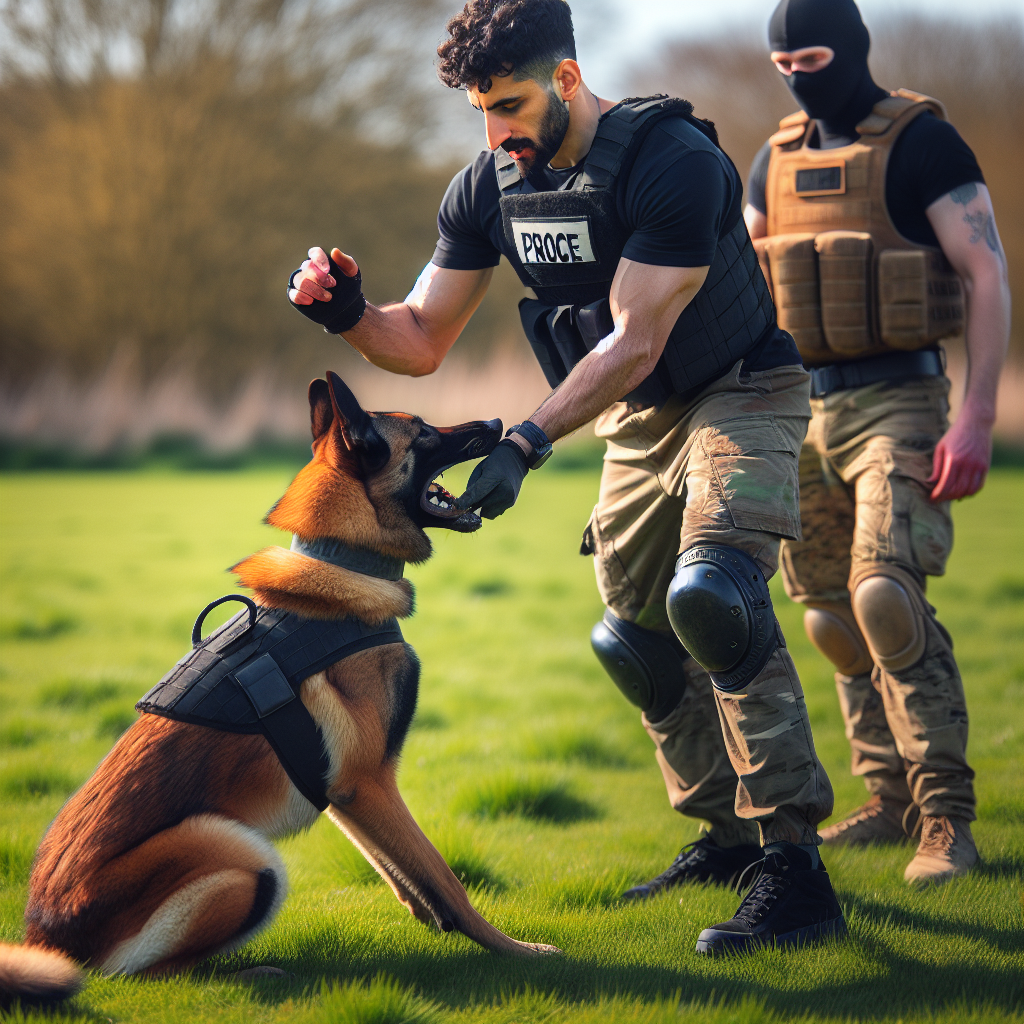IGP Pre Trial Diet and Hydration

Why IGP Pre Trial Diet and Hydration Decide Performance
IGP rewards calm power, clean obedience, and reliable grips under pressure. On trial day, your dog must track with a clear brain, drive hard without fading, and settle fast between routines. That is why IGP pre trial diet and hydration matter as much as your training reps. At Smart Dog Training, we use the Smart Method to build a simple plan that keeps energy steady, guts quiet, and focus sharp from first track to last grip. A certified Smart Master Dog Trainer will help you tailor this plan for your dog and your trial schedule.
The goal is not just more fuel. The goal is the right fuel at the right time, delivered through a routine your dog already trusts. IGP pre trial diet and hydration must reduce risk, not add it. That means no last minute food changes, clear timing, and a structure that mirrors your training days.
The Smart Method Approach to Fuel and Fluids
Smart Dog Training builds every plan around our five pillars. We apply them to IGP pre trial diet and hydration so your dog gets clarity and confidence.
- Clarity: Define exact feeding and watering times that match your report times, warm ups, and phases.
- Pressure and Release: Use calm structure to prevent scavenging or gulping. Create clear release to drink or eat, then end access so the gut can settle.
- Motivation: Choose foods your dog loves and tolerates. We reward between phases with value that does not upset the stomach.
- Progression: Rehearse the full plan in training. Add distractions and time gaps just like a real trial.
- Trust: Your dog should feel predictable support. When routine is steady, arousal drops and performance rises.
With IGP pre trial diet and hydration, routine beats novelty. A Smart Master Dog Trainer will map your timeline and rehearse it during your last block of prep.
Understand the Energy Demands of IGP
IGP has three phases with different energy profiles. Tracking needs calm nose work with low arousal but long concentration. Obedience needs bursts of speed, precise positions, and quick recoveries. Protection demands peak drive with full grips and strong nerves. IGP pre trial diet and hydration should support steady blood sugar, fast neuromuscular firing, and good thermoregulation without bloat or gut upset.
That balance comes from quality protein for muscle, fat for sustained energy, and well timed carbohydrates for quick access. Fluids and electrolytes keep the engine cool and the brain clear. Overdoing any of these can hurt performance. Underdoing them can cause fading or cramping.
The Timeline for IGP Pre Trial Diet and Hydration
Build your plan over time. Do not change your dog’s base diet in the final week unless directed by your vet for medical reasons. Smart Dog Training focuses on timing, portion sizing, and hydration strategy.
7 to 10 Days Out
- Lock your menu. Keep base food identical to what your dog already tolerates.
- Rehearse trial morning. Pick exact meal size and timing that you will use on the day.
- Track and train on the planned schedule. Run at least two full dress rehearsals with the same feeding and watering routine. This is core to IGP pre trial diet and hydration.
- Note stools, energy, and focus. Adjust portion size slightly if needed to keep your dog light, keen, and regular.
72 Hours Out
- Stabilise fibre. Avoid new treats or heavy chews.
- Increase water access during the day. Offer small, frequent drinks so the gut is not flooded.
- If your dog is a heavy sweater or it will be hot, discuss safe electrolyte use with your Smart trainer. Keep it consistent with training rehearsals.
The Day Before
- Feed the normal evening meal, not larger. We want a quiet gut and normal stool in the morning.
- Offer water until two hours before bedtime, then a small final drink. This supports IGP pre trial diet and hydration without sleep disruption.
- Pack your trial bag with pre measured food, treats, water, and bowls.
Trial Morning
- Feed a small meal two to three hours before your first work. Aim for 25 to 50 percent of a normal morning portion depending on your dog’s gut history and arousal level.
- Prefer a familiar, highly digestible protein and fat source. Keep fibre low.
- Offer a controlled drink on waking and a small top up 60 to 90 minutes before work.
Between Phases
- Offer small sips rather than big drinks. Use a measured bowl to avoid guzzling.
- Use tiny food rewards that your dog already trains on. Choose soft, easy to swallow pieces. This is part of Smart Dog Training’s proven IGP pre trial diet and hydration routine.
- If the gap between phases is long, consider a small top up snack 90 to 120 minutes before the next phase.
Post Trial Recovery
- Offer water first, then a balanced meal within one to two hours.
- Return to full portions by the next meal.
- Note stools and recovery energy to refine your next event prep.
Macronutrients That Matter
IGP pre trial diet and hydration are about quality and timing more than novelty. Keep it simple.
Protein
- Use a complete protein source your dog already eats without issue.
- Trial morning meal should be moderate protein to prevent heaviness in the gut but enough to support muscle.
- Do not introduce new meats in the last week.
Fat
- Fat provides sustained energy and helps focus stay steady.
- Keep fat levels similar to training. A sudden increase can slow digestion.
- Include fish oil only if already in the plan. Do not add on trial week.
Carbohydrate
- Well tolerated carbs can support quick access energy in obedience and protection.
- Use sources your dog knows, in small portions. Think of this as timing, not loading.
- Smart Dog Training recommends rehearsal to see how your dog performs with a small carb top up 90 minutes before a phase. This fits within IGP pre trial diet and hydration without GI risk.
Fibre
- Keep fibre steady and modest for the 72 hours before the trial.
- Avoid bulky vegetables, new chews, or rich extras.
Hydration Strategy for IGP Pre Trial Diet and Hydration
Hydration drives thermoregulation, joint health, and brain function. Dogs do not sweat like humans. They pant and lose moisture fast when aroused. IGP pre trial diet and hydration must plan water access so your dog stays hydrated without a sloshy stomach.
Daily Baseline
- Offer free water throughout the day in the week before the event.
- Monitor intake. If your dog under drinks, flavour water lightly with a tiny amount of the regular food broth that you have already used in training.
Electrolytes
- Only use an electrolyte plan you have rehearsed. Keep the concentration low and consistent.
- Offer electrolyte water well before work, then switch to plain water as you near the start time.
Timing Before Work
- Last decent drink 60 to 90 minutes before work.
- Small sips 20 to 30 minutes out if needed, especially in heat. This is a key part of IGP pre trial diet and hydration routines at Smart Dog Training.
After Each Phase
- Offer small drinks and watch for heavy panting. Allow short, calm cool down in shade.
- Check gums and capillary refill. Slow refill or tacky gums can signal dehydration.
Gut Health and Avoiding GI Upset
A quiet gut wins trials. Stress and novelty upset many dogs. Keep everything familiar. IGP pre trial diet and hydration should honour your dog’s normal routine.
- No new proteins, supplements, or treats in the last week.
- Reduce bulky fibre two to three days out if your dog tends to stool often.
- Use small, soft training rewards that melt in the mouth.
- Warm up the gut with a tiny bite of normal food 15 minutes before work only if you rehearsed it and it helped.
Body Condition and Weight Management
IGP dogs perform best in lean, athletic condition. Excess weight raises heat, slows footwork, and reduces grip stamina. Smart Dog Training sets a target body condition and keeps it steady for the last month before the trial. Do not try to cut weight in the final week. IGP pre trial diet and hydration work best on a stable platform.
Feeding Nervous or Picky Dogs on Trial Day
Some dogs go off food under stress. Others gulp from arousal. Both need planning.
- For picky eaters, bring a pre measured topper already used in training. Offer tiny bites, not big meals.
- For gulpers, feed by hand in calm sits. Use slow, deliberate delivery with marker words from your Smart training.
- If your dog will not eat, do not force it. Use fluids and small rewards to keep the engine ticking until the next window for a snack.
Hot or Cold Weather Adjustments
Weather changes demand tweaks to IGP pre trial diet and hydration.
- Heat: Earlier water access, shade, cool mats, and more frequent small sips. Consider your rehearsed electrolyte plan.
- Cold: Slightly warmer water can encourage drinking. Allow more time after drinks before work to avoid a heavy stomach.
- Wind and glare on the track can raise arousal. Keep the gut quiet and water timing strict.
What to Pack in Your Trial Day Bag
- Pre measured food for morning meal and top ups
- Two bowls one for water and one for food
- Measured bottle for water and a second for any rehearsed electrolyte mix
- Soft, known training rewards
- Cooling towel or breathable coat depending on weather
- Waste bags and wipes
- Notebook with your timing plan for IGP pre trial diet and hydration
Ready to turn your dog’s behaviour around? Book a Free Assessment and connect with a certified Smart Master Dog Trainer available across the UK.
Sample Feeding and Hydration Plans
Use these as starting points. Always rehearse your version during training. The core is the same across sizes because IGP pre trial diet and hydration is about timing and gut stability.
Small Dog Example 10 kg
- Evening before: Normal meal by 7 pm. Water until bedtime with a small final drink.
- Morning of: 25 percent of normal breakfast two to three hours before first phase.
- Water: Small drink on waking and a small top up 60 minutes out. Sips only within 30 minutes of work.
- Between phases: Tiny soft rewards as needed. A small snack if more than two hours to next phase.
Medium Dog Example 25 kg
- Evening before: Normal meal. No new extras.
- Morning of: 33 percent of normal breakfast two to three hours before first phase.
- Water: As above, with measured sips.
- Between phases: Reward as trained. Snack 90 to 120 minutes out if energy dips.
Large Dog Example 35 kg plus
- Evening before: Normal meal. Keep it earlier in the evening.
- Morning of: 25 to 33 percent of normal breakfast three hours before first phase to allow more digestion time.
- Water: Controlled access with longer buffer before work.
- Between phases: Small rewards only. Avoid heavy snacks close to work.
Fine Tuning With Smart Dog Training
The last 10 percent of success comes from precise adjustments to IGP pre trial diet and hydration based on your dog’s data. We track stools, energy, panting recovery, and focus. We then adjust portion size, water timing, or reward value to hit your dog’s best rhythm. This is the same structured thinking we use across the Smart Method so you get repeatable results in real life.
Common Mistakes to Avoid
- Changing food within a week of the trial
- Feeding a full breakfast on trial morning
- Giving large drinks within 30 minutes of work
- Adding rich toppers or oils that were not rehearsed
- Skipping rehearsal of the plan during training
- Letting your dog guzzle water after protection without a calm cool down
FAQs on IGP Pre Trial Diet and Hydration
How far before the first phase should I feed my dog
Two to three hours before the first phase suits most dogs. Large dogs may need closer to three hours. This timing keeps the gut light while giving steady energy as part of your IGP pre trial diet and hydration plan.
Should I use electrolytes on trial day
Only if you have rehearsed them in training and your dog tolerated them. Keep the concentration low and offer them well before work. Many dogs perform well with plain water when the plan is consistent.
My dog gets soft stools when stressed. What should I change
Do not change the base diet in the final week. Reduce bulky fibre 72 hours out, keep rewards soft and simple, and use the same feeding times you rehearsed. Consistency is the core of IGP pre trial diet and hydration.
Is it better to fast my dog on trial morning
A full fast can work for some dogs but often reduces stamina and focus. Smart Dog Training usually recommends a small, rehearsed meal two to three hours before the first phase.
How much water should I offer between phases
Use small, measured sips. Avoid large drinks within 30 minutes of work. This protects the stomach and supports breath control.
Can I add new toppers to boost appetite on the day
No. New foods raise the risk of gut upset. Bring a topper you have used in training if your dog is picky. Keeping food familiar is vital in IGP pre trial diet and hydration.
What if track time moves and my plan shifts
Build buffers into your plan. If the start is delayed, use tiny rewards and small sips to bridge the gap. A Smart trainer will help you map contingencies.
How do I know if my dog is dehydrated
Watch for tacky gums, sunken eyes, and slow capillary refill. Heavy panting with a dry tongue also warns. Offer small drinks, cool your dog in shade, and adjust your schedule.
Conclusion
IGP pre trial diet and hydration should be as rehearsed and precise as your heeling pattern. Feed what your dog already trusts. Time small meals and measured drinks to match each phase. Use simple, soft rewards and calm cool downs. Above all, make the plan part of your training long before you step on the field. That is the Smart way to fuel focus, stamina, and recovery.
Your dog deserves training that truly works. With certified Smart Master Dog Trainers SMDTs nationwide, you'll get proven results backed by the UK's most trusted dog training network. Find a Trainer Near You



